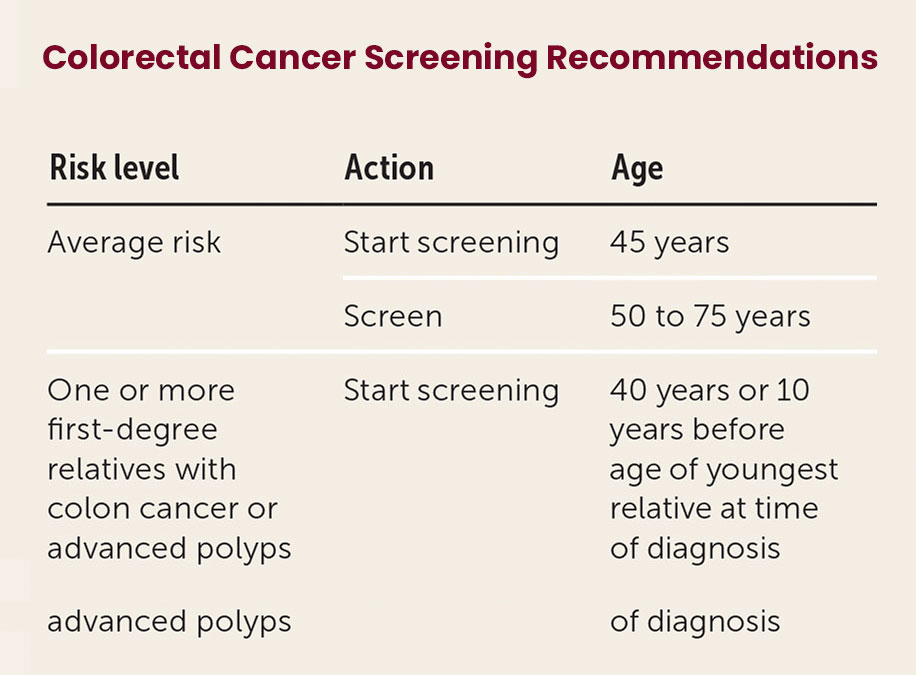What Is Colorectal Cancer Screening?
Colorectal cancer is a type of cancer that affects the colon (large intestine) and rectum. Screening for colorectal cancer is a crucial preventive measure as it helps detect the disease early, when it is more treatable.
Colorectal cancer screening is a process of testing for early signs of cancer in the colon and rectum, even before symptoms appear. The goal is to find and remove precancerous growths (polyps) or detect cancer at an early stage when it is more manageable. Screening methods typically involve simple tests that can be done at a doctor’s office or at home.
What Are the Recommendations for Colorectal Cancer Screening?
The choice of screening method depends on individual preferences, risk factors, and medical history:
- People with no risk factors for colon cancer (i.e., average-risk) should start screening at age 45.
- In people with a first-degree relative (parent, sibling, or child) who was diagnosed with colorectal cancer before age 60, you may need to begin screening at age 40 or 10 years earlier than the age of the youngest affected relative.
- People with certain genetic conditions may need to start screening much earlier than and be screened more frequently.

Common screening methods include stool-based tests like faecal occult blood tests (FOBT), faecal immunochemical tests (FIT), and colonoscopy.
What Are the Diagnostic Procedures Used for Screening?
Colorectal cancer screening involves various diagnostic procedures to detect abnormalities in the colon and rectum. Common methods include:
- Fecal Occult Blood Test (FOBT) or Fecal Immunochemical Test (FIT): These tests detect tiny amounts of blood in the stool, which may indicate the presence of polyps or cancer.
- Colonoscopy: During this procedure, a flexible tube with a camera is inserted into the rectum and colon to visualize the entire colon and remove any polyps found.
- Flexible Sigmoidoscopy: This test examines the lower part of the colon and rectum for polyps or signs of cancer, but it does not evaluate the entire colon.
- CT Colonography (Virtual Colonoscopy): It uses CT scanning to create detailed images of the colon and rectum, allowing the detection of polyps or tumors.
What Is the Difference Between Colorectal Cancer Screening and Screening Colonoscopy?
Colorectal cancer screening is a broader term that encompasses various methods, including colonoscopy. A screening colonoscopy is a specific type of colorectal cancer screening procedure. While some screening tests can be done at home, a colonoscopy requires visiting a healthcare facility.
During a colonoscopy, the doctor can directly visualise the entire colon and rectum, making it a more comprehensive examination and allowing the removal of polyps simultaneously. Other screening tests may be used as initial steps or alternatives for those who cannot undergo a colonoscopy.





